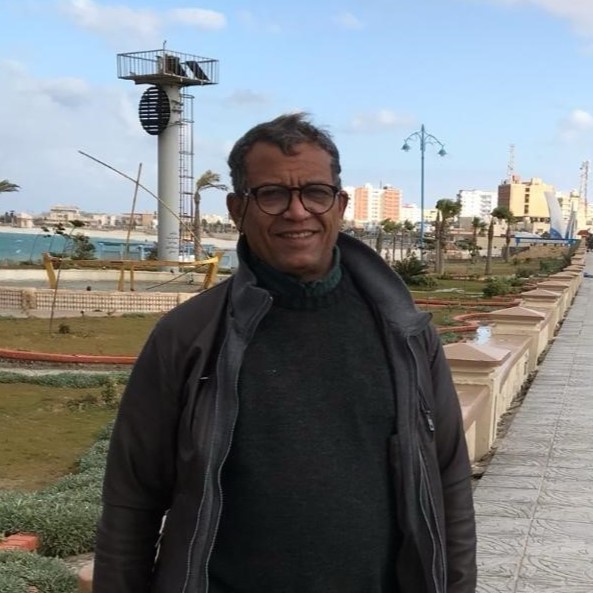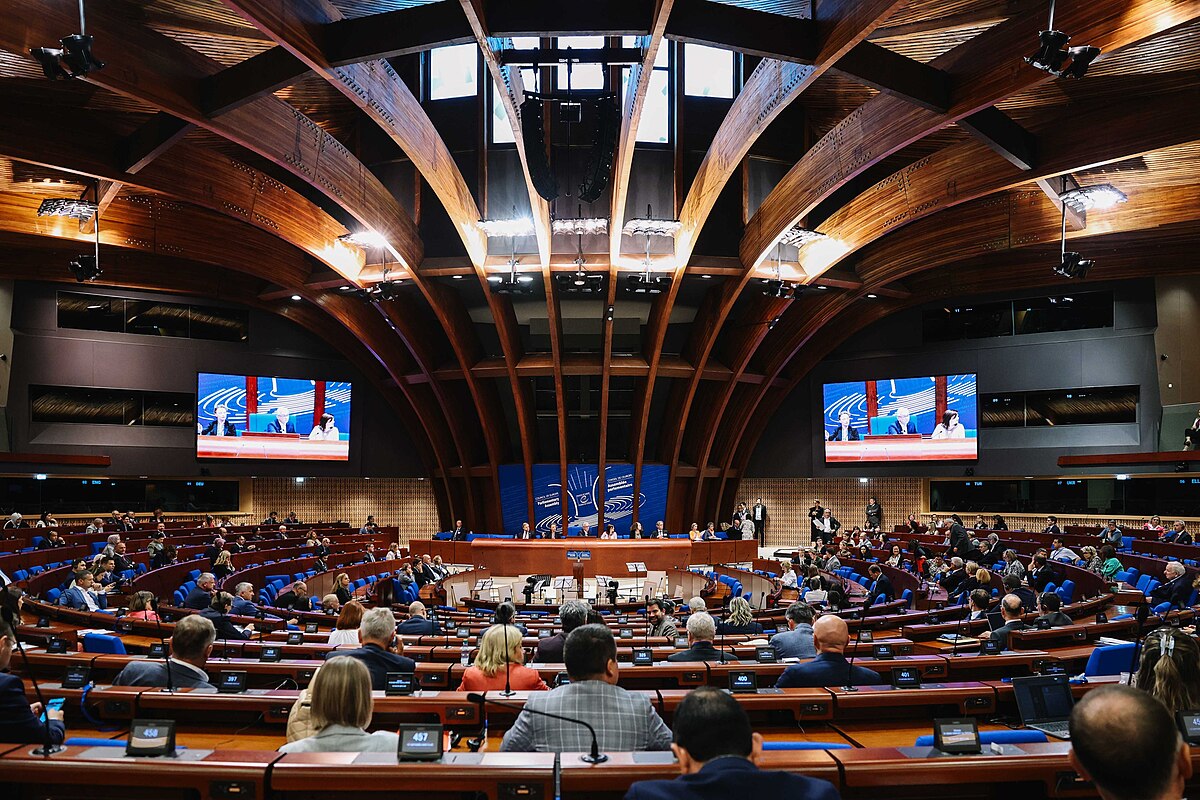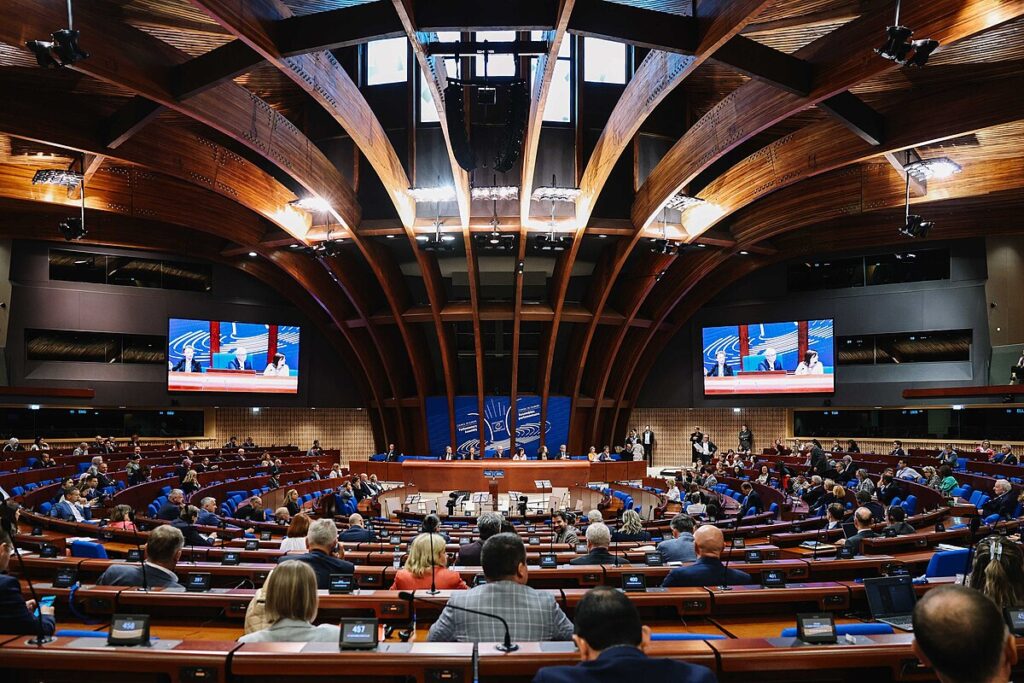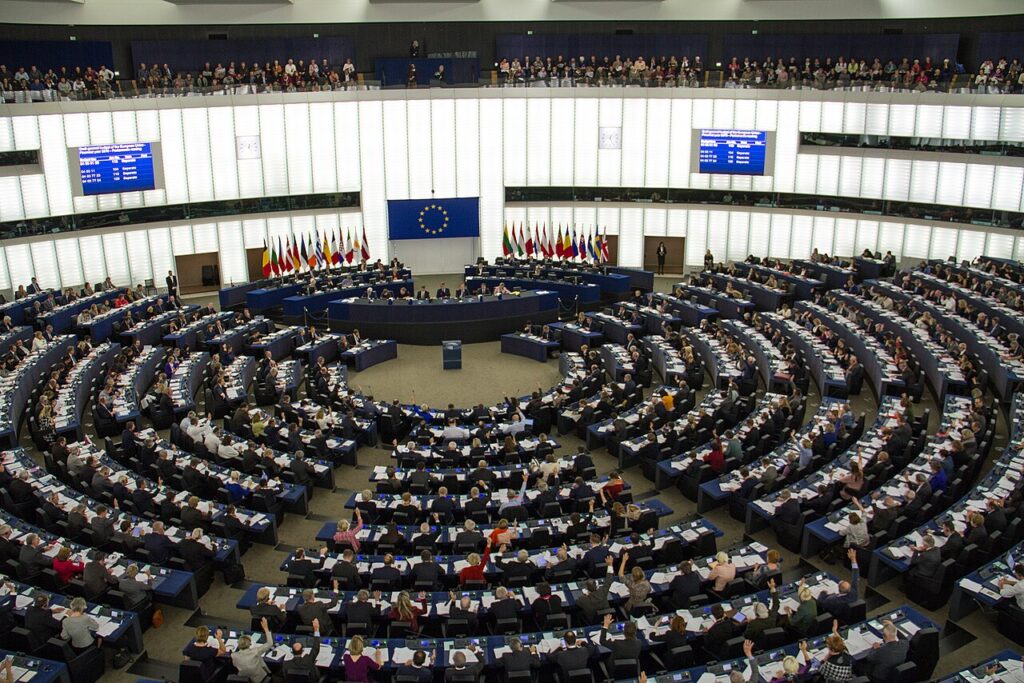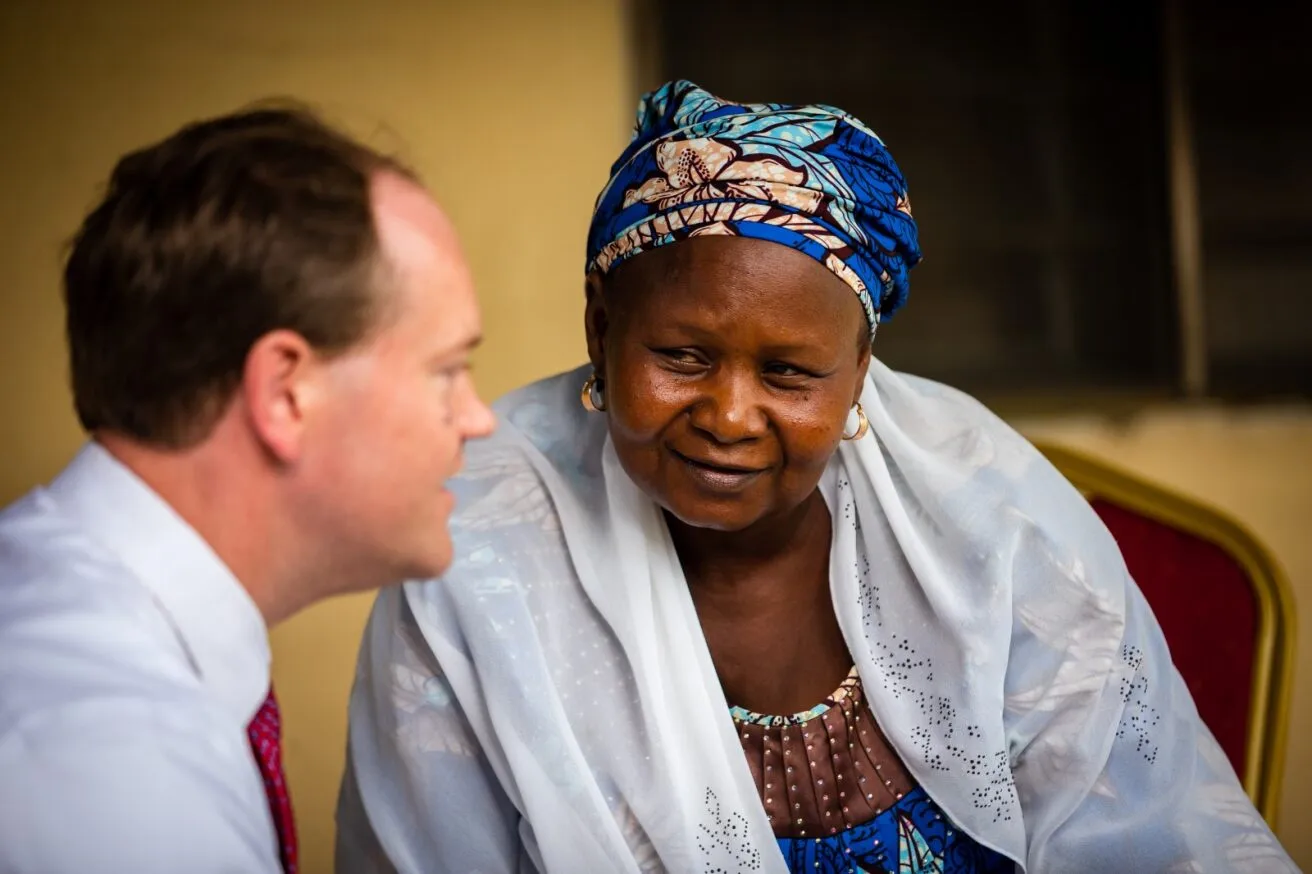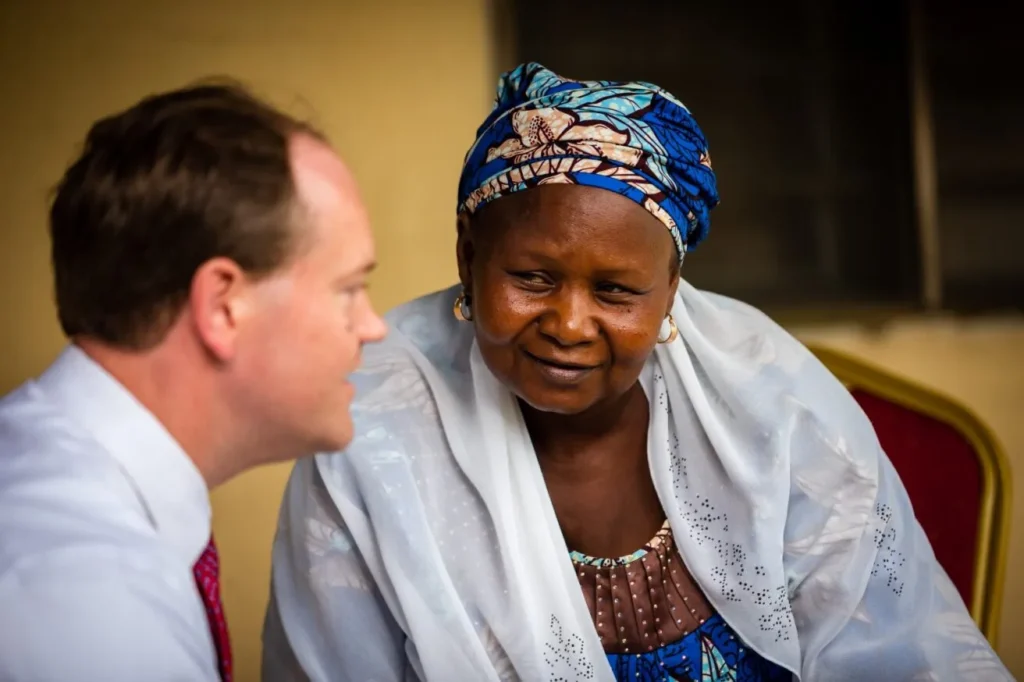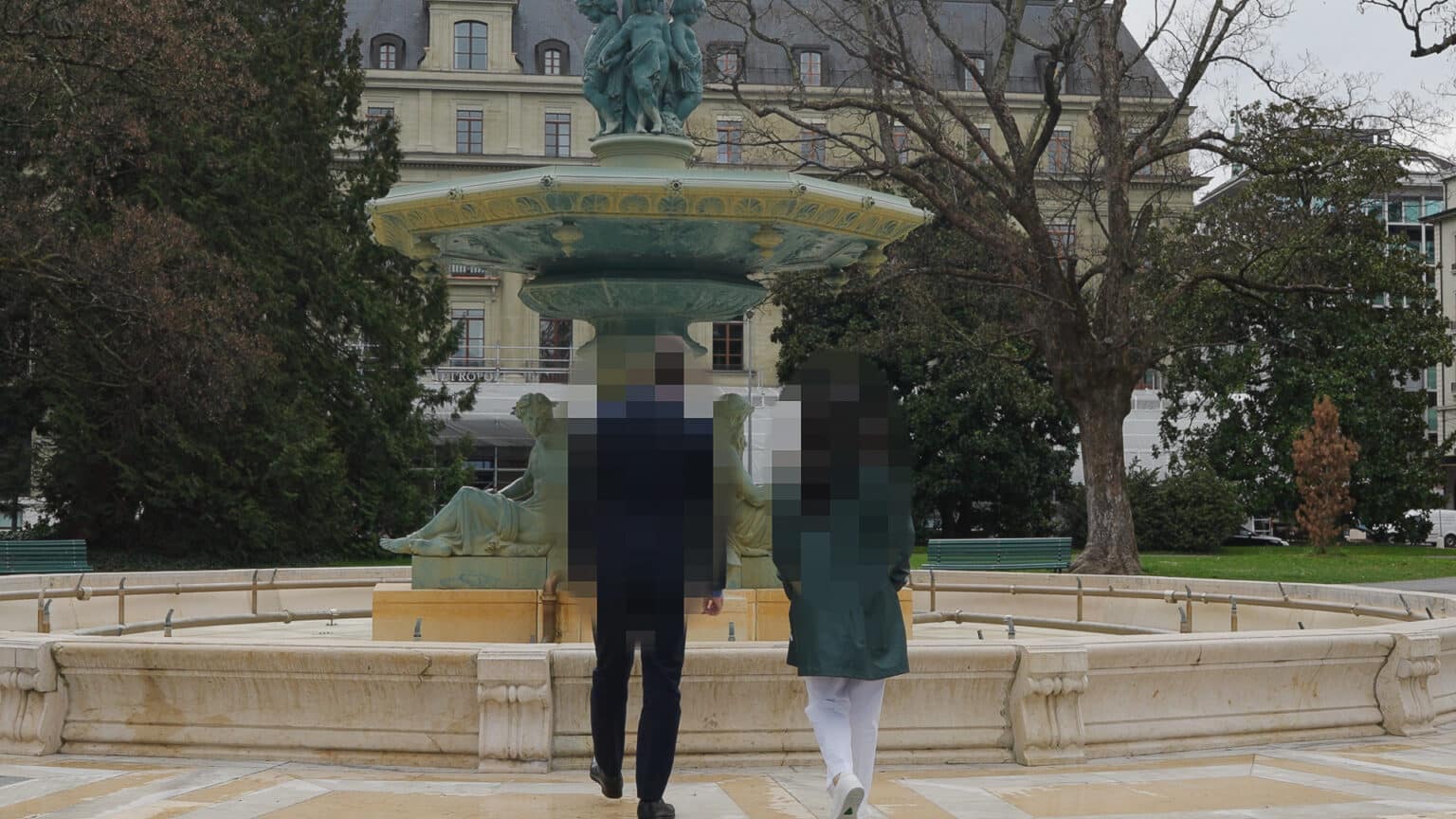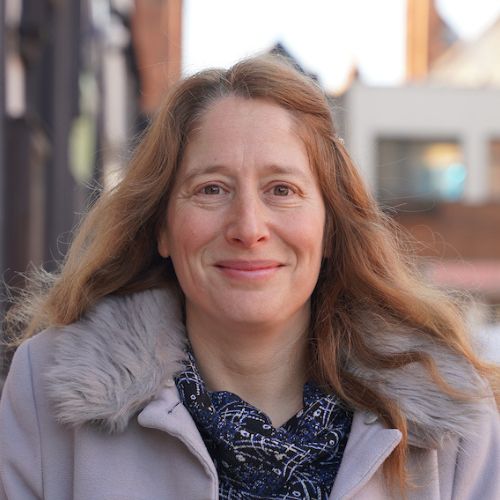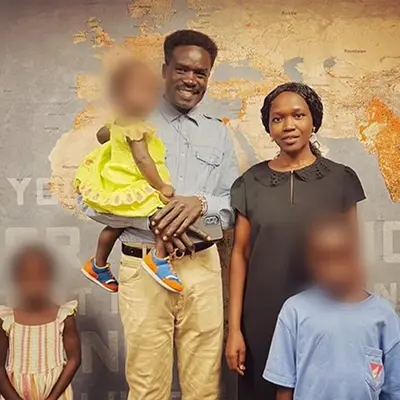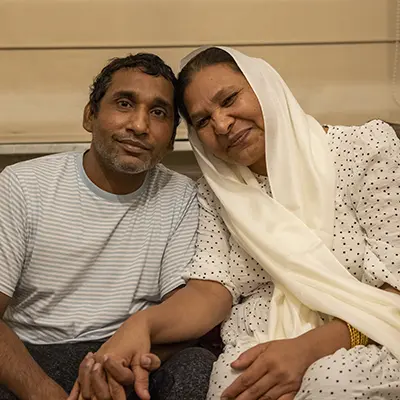STRASBOURG (1 February 2025) – European politicians on Thursday called for social media censorship to “protect democracy” and criticised X and Meta’s free speech policies during a debate at the Council of Europe.
Politicians at the Parliamentary Assembly of the Council of Europe (PACE) called for censorship, in the form of tackling so-called “misinformation”, “disinformation” and “hate speech” online, and voted in favour of a report on social media content regulation.
This follows the European Union last week doubling down on online censorship through the Digital Services Act (DSA), with the same justification of “protecting democracy”.
During Thursday night’s debate, Elon Musk and Mark Zuckerberg were singled out as threatening democracy with their free speech policies.
Belgian politician Christophe Lacroix said: “Why is Elon Musk in the US government?… There is a conspiracy, in any case a conjunction of interests between populists and the far right and the billionaire owners of social networks to effectively interfere in the electoral process.”
UK Labour MP Cat Eccles said Mr Musk’s “rise of influence” was “something we should all be worried about” and criticised Meta for its new free speech policy, which she characterised as “abandoning fact checking”.
She also indicated support for the notoriously heavy-handed prosecutions for social media posts during Britain’s riots last summer, saying: “While we must value freedom of expression, we must remember that it does not protect individuals from the consequences of their actions. In the UK we saw this play out recently with the horrendous Southport murders last summer and subsequent riots, with people arrested and charged for inciting hatred and violence on all sides.”
French politician Sandra Regol said free speech online posed a threat to “our democracy” and “diversity”.
She said: “We’ve heard a lot about freedom of expression. It’s supposed to be the guarantor of this diversity, it’s supposed to be the guarantor of our democracies and, in a crazy, absolute reversal of values, it’s now the tool that’s destroying this diversity.”
Three amendments were proposed in Thursday’s debate to preserve freedom of expression and they were all rejected.
But an amendment to the report calling for collaborating “with journalists and fact-checking organisations to effectively combat disinformation” was adopted by two-thirds majority.
This puts Europe further at odds with the US regarding free speech, after President Trump last week signed an executive order to end federal government censorship.
Luxembourg MEP Fernand Kartheiser said:
“Free speech is under serious threat in Europe. It was deeply concerning to see politicians at the Council of Europe calling for online censorship in the name of ‘protecting democracy’.
“Democracy is impossible without free speech, but for some reason, too many politicians, including from the UK, can’t seem to grasp this.
“Labour MP Cat Eccles voiced support for Britain’s notoriously heavy-handed prosecutions for social media posts during last summer’s riots in the country.
“European politicians should consider how their support for censorship and their attacks on the free speech policies of American citizens Elon Musk and Mark Zuckerberg’s platforms will affect our relationship with our vital ally the United States.
“The US has made its commitment to free speech clear and US Vice President JD Vance already threatened last year to withdraw US support for NATO if the EU censors X.
“For the sake of truly preserving European democracy and also good relations with America, all attempts to impose censorship in Europe, including through the Digital Services Act, must end.”
Paul Coleman, executive director of ADF International, a global organisation dedicated to protecting fundamental freedoms, including at the European institutions, stated:
“We are living in a new bipolar order of speech. On the one hand, Europe is doubling down on censorship, while the US is recommitting to its free speech heritage.
“This will usher in an unprecedented era of tension within the West itself over this most basic of human rights, and it is the responsibility of all who value freedom to side with the protection of free speech.”
EU doubled down on social media censorship with DSA last week
Last week, the European Commissioner in charge of enforcing the DSA, Henna Virkkunen, announced a number of measures to further crack down on speech, including doubling the number of staff working on enforcement from 100 to 200 by the end of 2025.
The Digital Services Act (DSA), which came into full force in February 2024, is an EU regulation that aims to tackle “misinformation”, “disinformation”, and “hate speech” online.
By requiring the removal of so-called “illegal content” on social media platforms, it censors free speech both within and outside the EU and could even affect the speech of US citizens online.
On the DSA, Mr Coleman commented:
“Last week, the European Commission made clear that it will be increasing its efforts to suppress speech, arguing that the Digital Services Act is needed to ‘protect democracy’ from so-called ‘misinformation’, ‘disinformation’ and ‘hate speech’ online.
“As we saw clearly from Thierry Breton’s letter to Elon Musk this summer, warning him not to breach the DSA ahead of his interview with Donald Trump, the DSA will be used to censor views disfavoured by those in power.
“The DSA poses a grave threat to the fundamental right to freedom of expression, guaranteed to every person under international law. It is not the place of any authority to impose a narrow view of acceptable speech on the rest of society.
“The effects of the DSA will not be confined to Europe. There are legitimate worries that the DSA could censor the speech of citizens across the world, as social media companies could regulate their content globally to comply with European standards.”
Other measures announced by Commissioner Virkkunen included making a previously voluntary code of conduct on “illegal hate speech online” legally binding and advancing a framework called the European Democracy Shield (EDS).
The EDS uses fact checkers and NGOs to combat so-called “foreign information manipulation, interference, and disinformation”.
Under the DSA, social media platforms can face massive fines of up to 6% of global annual turnover for failing to remove so-called “misinformation”, “disinformation” and “hate speech”.






